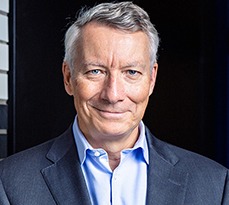The CAFCN’s mandate is to facilitate cross-regional and sectoral knowledge creation and exchange to fulfil its objective of informing decisions related to financial inclusion, economic growth and poverty.
At an online event to showcase the aims of the CAFCN, its establishment and its presence in 4 regions globally, James Duddridge, the UK’s Minister for Africa at the Foreign, Commonwealth & Development Office, highlighted fintech’s ability to widen access to finance for millions of unbanked and underbanked individuals globally.
COVID-19 has increased the demand for fintech and digital financial services, as evidenced by the recently published Global COVID-19 FinTech Market Rapid Assessment Study. This, in turn, presents significant potential to lift millions of people out of poverty and grow economies on an ongoing basis.
“Whilst this growth is positive, if it outpaces regulatory innovation or capacity, it can pose real risks to consumers, investors and financial stability,” says Mr Duddridge. “That is why UK Aid has supported the establishment of the Cambridge Alternative Finance Collaboration Network, which aims to accelerate the creation and exchange of knowledge relating to fintech globally.”
Essential to the CAFCN is a series of strategically located regional research collaborations with embedded research teams, providing the platform for deeper engagement both intra and inter-regionally. During 2020, the CAFCN has successfully established research collaborations in four regions – Sub-Saharan Africa, Middle East and North Africa, Asia-Pacific and Euro-Mediterranean. These collaborations and regionally embedded teams have been instrumental in supporting the production of two key studies assessing the impact of COVID-19 on fintech regulation with the Global COVID-19 FinTech Regulatory Rapid Assessment Study and fintech markets (as referenced above) jointly undertaken with the World Bank and the World Economic Forum.

“Having activated the CAFCN in 4 regions during 2020, with tangible evidence of impact including the production of 2 highly relevant, far-reaching global studies, and an education programme reaching 645 financial regulators in 118 countries, today we are officially announcing the arrival of the CAFCN as active and growing in breadth and depth,” says Hunter Sims, Director of Operations at the CCAF.
“We are now entering a new chapter for the CAFCN, with plans to operationalise in three more regions,” explains Dr Robert Wardrop, Director and Co-Founder of the CCAF. “We will also be introducing digital tools, currently under development, that provide the necessary resources to feed a dynamic global network that enables tangible assistance to be delivered to underbanked, unbanked, financially excluded populations. These tools will be equally relevant to supporting the development of micro, small and medium-sized enterprises worldwide.”
The launch event took place on 10 December 2020 and introduced the aims of the CAFCN.


